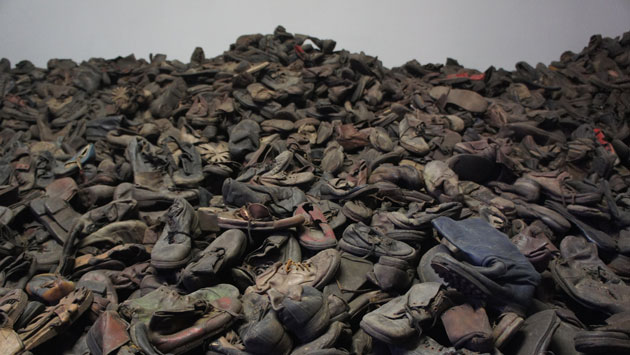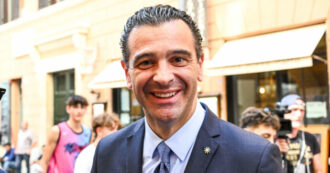It’s raining. There is this freezing wind. And simply, this stretch of grass. With the Allies on the doorstep, Nazis tried to suppress any evidence of crimes by setting all on fire. The crematoria. The gas chambers. And so there’s nothing left, today, but this stretch of grass.
This stretch of ashes.
It comes to my mind my father. His first time in Jerusalem. When in one of my favourite cafés, Tmol Shilshom, he asked for some traditional Israeli food. The waitress thought it over for a short while, then she said: ‘There’s nothing traditional Israeli. There’s a bit of everything here – she said. – But there’s nothing truly ours’.
And it comes to my mind the Alley of the Righteous. My first time at Yad Vashem, the Holocaust Memorial. The alley in honor of non-Jews who risked their life to save Jews. When being used to the woods of Tuscany, the oaks, the pines, the beeches, the linden trees, I was expecting an imposing, majestic alley. I was expecting these trees – what an idiot: these centuries-old trees. Because they were planted in 1962, actually. And they are still so small.
So vulnerable. They look so fragile.
Fragile like Israel.
Which is something you are forbidden to say, if like me, you live in Ramallah: on the other side of the Wall. Because you read a newspaper in Israel, any newspaper, and every day, still today, there is an article on the Shoah. The Shoah is all-present, in Israel. As if it finished yesterday. And most of all, as if it could start again tomorrow. And so there’s much talk on the political use, and abuse, of history. Because somebody benefits from perpetuating this idea of the fragility of the Israelis. As if they were still the Jews of the Thirties: as if in the Middle East they were the weak ones, the ones under siege, rather than those who besiege. Who bomb. Those who got nuclear weapons. It’s true. Only, in the end what we perceive is as important as what’s real. Actually, it’s perhaps what’s real. Because as Mustafa Barghouti is used to say, it’s quite easy to find a solution for Israelis and Palestinians. I mean: parting the land in two states, or establishing one state, or also three, four states. Ten states. It’s quite easy, he says. The final issues left by the Oslo Accords to a future agreement, the borders, Jerusalem, the settlements, the refugees: technically speaking, he says, it’s not a brain teaser. The challenge is a solution that makes the Israelis feeling safe – not: that makes them safe: not only. That makes them feeling safe.
With Israelis, is a matter of psychoanalysts, rather than negotiators.
Because in the end every country, every war, Bosnia, Syria, Lebanon: Rwanda: no one believed it possible. And instead. Elie Weisel said: In the place I come from, society was composed of three simple categories: the killers, the victims, and the bystanders. And it’s true, we aren’t in the Thirties anymore. It isn’t Israel, today, the one under siege. And yet, we can’t turn a blind eye to those who are here in Auschwitz and smile, and take a selfie.
Francesca’s new book, Syrian Dust, will be released in the US in September by Seven Stories Press
Articolo Precedente
Warsaw – a photo

Articolo Successivo
Idlib – A photo






